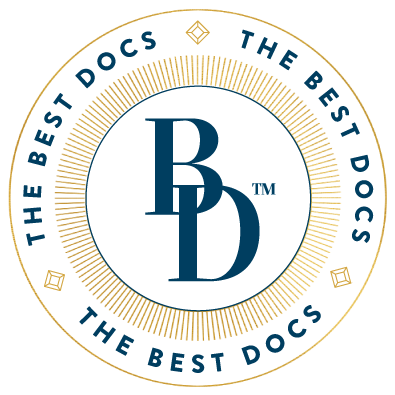Cataract Surgery Advice? Top Surgeon Says ‘Know Your Options!’
Each year, millions upon millions of Americans choose to have cataract surgery. And with good reason… the surgery is a wonderful way to improve a patient’s eyesight and, in most cases, reduce their dependency on glasses.
Still, Dr. Craig Cassidy—a board-certified ophthalmologist who has performed tens of thousands of cataract surgeries—has a word of advice for anyone interested in the procedure: Make sure you understand all your options before choosing which cataract surgery is best for you.
“The fact of the matter is that cataract surgery is not a one-size-fits-all procedure,” Dr. Cassidy explains. “With today’s technological advances, patients have more options than ever to find a solution that is ideal for their wants and needs.”
The most basic option—which has served as a solid choice for decades—is a straightforward procedure where the doctor manually removes the cataract and replaces it with a standard monofocal lens implant. Specifically, the surgeon uses a small ultrasonic probe to break up the cloudy lens and then, once the cloudy lens is removed, inserts the new standard lens into the eye.
“The monofocal lens cures the cloudiness in the eye and is effective for correcting distance vision,” Dr. Cassidy explains. “After the surgery, the majority of these patients won’t need to wear glasses for driving, movies, and watching television. However, near vision problems will still persist.”
The next option—laser-assisted cataract surgery—takes the surgery results to a higher level. Although this is essentially the same procedure as the “standard” approach, it is done with much greater precision thanks to the advanced technology. Here, the surgeon uses computerized mapping to obtain high-resolution images of the impacted eye and then guides the laser to make the incisions. “This level of precision isn’t possible with the traditional method,” Dr. Cassidy asserts.
The surgeon uses computerized mapping to obtain high-resolution images of the impacted eye and then guides the laser to make the incisions. “This level of precision isn’t possible with the traditional method,” Dr. Cassidy asserts.
Additionally, Dr. Cassidy explains that the laser-assisted approach allows him to soften the central core of the cataract with less ultrasonic energy. This means there is less potential damage to the intraocular structures. The laser also will dramatically reduce the astigmatism of the patient, which leads to even more clear vision after the surgery.
For patients who have the desire and budget to pursue what could be called “total vision correction”, Dr. Cassidy recommends premium intraocular lenses. “The industry often refers to these lenses as ‘multifocal’ because they can correct the patient’s near and distance vision,” he explains. “The additional use of advanced technology implants allows the patient to be able to see well at both distance—for example, driving and TV—and for near and intermediate lengths—computer, shopping, and eating. In that sense, the premium IOLs are revolutionary.”
Still, while premium IOLs are a huge advance in cataract surgery, they aren’t the ideal choice for everyone. Sometimes they aren’t necessary or cost-effective. This is why Dr. Cassidy stresses the importance of understanding the patient’s vision needs, post-operative expectations, as well as their lifestyle and budget. “An in-depth understanding of the patient’s complete situation is critical to helping them select the best option for their cataract surgery,” he says.
Even with these options and advancements, another important consideration is the qualifications of the doctor selected to perform the cataract surgery. In most cases, patients are advised to work with a board-certified doctor who has extensive training and experience. “Cataract surgery is an intricate procedure that requires extensive knowledge and skill,” Dr. Cassidy says. Dr. Cassidy is certified by the American Osteopathic Board of Ophthalmology and is a Fellow of the American Academy of Ophthalmology.



